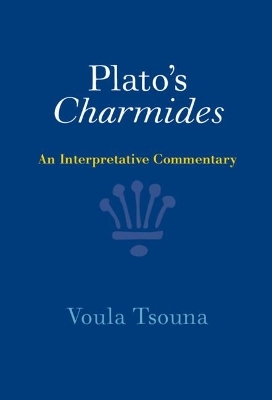
Plato's Charmides
Cambridge University Press (Verlag)
978-1-316-51111-4 (ISBN)
The Charmides is a difficult and enigmatic dialogue traditionally considered one of Plato's Socratic dialogues. This book provides a close text commentary on the dialogue which tracks particular motifs throughout. These notably include the characterization of Critias, Charmides, and Socrates; the historical context and subtext, literary features such as irony and foreshadowing; the philosophical context and especially how the dialogue looks back to more traditional Socratic dialogues and forward to dialogues traditionally placed in Plato's middle and late period; and most importantly the philosophical and logical details of the arguments and their dialectical function. A new translation of the dialogue is included in an appendix. This will be essential reading for all scholars and students of Plato and of ancient philosophy. This title is also available as Open Access on Cambridge Core.
Voula Tsouna is a Professor in the Department of Philosophy at the University of California, Santa Barbara. Her other books include: [Philodemus] [On Choices and Avoidances] (1995), a critical edition and commentary of one of the Herculaneum papyri on Epicurean ethics, which received the Theodor Mommsen Award; The Epistemology of the Cyrenaic School (Cambridge, 1998), recently translated into Modern Greek (2019); The Ethics of Philodemus (2007); and a collection of essays on the Socratics and the Hellenistic schools (2012). She is currently preparing a monograph on Republic Books 8 and 9 and another on The Normativity of Nature in Hellenistic Philosophy, to appear in the series Cambridge Elements in Ancient Philosophy, edited by James Warren.
1. Introduction; 2. The prologue (153a1-159a10); 3. Charmides' first definition of sôphrosynê: Temperance is a kind of quietness (159b1-160d4); 4. Charmides' second definition: Temperance is a sense of shame (160d5-161b4); 5. Charmides abandons 'the best method'. The third definition: Temperance is 'doing one's own (161b4-162b11); 6. Enter Critias. The third definition revisited: Temperance is the doing or making of good things (162c1-164d3); 7. Critias' speech. Temperance is knowing oneself (164d4-165b4); 8. Socrates and Critias debate the technê analogy. From 'knowing oneself' to 'the knowledge of itself' (165b5-166e3); 9. Critias' final definition: Temperance is 'the science of itself and the other sciences' or 'the science of science' (166e4-167a8). The third offering to Zeus (167a9-c8); 10. Can there be an epistêmê of itself? The Argument from Relatives (167c8-169c2); 11. The Argument from Benefit (169c3-175a8); 12. The Epilogue; Appendix: Plato's Charmides. Translation. Alternative format; Bibliography.
| Erscheinungsdatum | 07.02.2022 |
|---|---|
| Zusatzinfo | Worked examples or Exercises |
| Verlagsort | Cambridge |
| Sprache | englisch |
| Maße | 158 x 235 mm |
| Gewicht | 660 g |
| Themenwelt | Geisteswissenschaften ► Philosophie ► Philosophie Altertum / Antike |
| ISBN-10 | 1-316-51111-1 / 1316511111 |
| ISBN-13 | 978-1-316-51111-4 / 9781316511114 |
| Zustand | Neuware |
| Haben Sie eine Frage zum Produkt? |
aus dem Bereich


